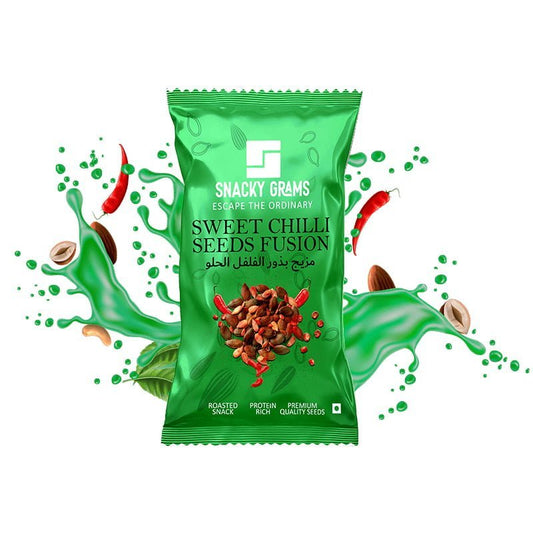Dry Fruits Benefits for Energy and Wellness
You already know dry fruits are "healthy." But what does that mean in real life? Should you eat them every day? Are some better than others? And is it even worth paying more for organic or handpicked options?
This article unpacks the real benefits of dry fruits, minus the fluff or outdated advice. You'll learn:
- What dry fruits actually do inside your body
- Which types help with energy, skin, and immunity
- How to avoid overdoing it (yes, it’s possible)
- When to shop, store, and soak them for max effect
Whether searching for a "dry fruits shop near me" is smarter than ordering online
If you’re health-conscious but time-starved—and you want small, doable food upgrades that actually work—this post is for you.
What Are Dry Fruits, Exactly?
Dry fruits are simply fruits that have had most of their water removed. This can happen naturally (sun drying) or mechanically.

Common dry fruits include:
- Raisins
- Figs
- Dates
- Apricots
- Prunes
Then you have nuts like:
- Almonds
- Walnuts
- Cashews
- Pistachios
Technically, nuts aren’t "dry fruits," but they’re often sold and consumed together—so we’ll treat them as part of the same family here.
Why Eat Dry Fruits Every Day?
Dry fruits aren't just old-school snacks-they’re nature’s multivitamin. When eaten in the right way, they can:
- Boost daily energy
- Improve gut health
- Support brain and heart
- Nourish skin and hair
- Strengthen your immune system
Think of them as compact nutrition-easy to carry, shelf-stable, and perfect for busy routines.
Best Dry Fruits for Energy
Feeling tired halfway through the day? A few dry fruits can help.
Top picks:
- Dates – High in natural sugars for quick fuel
- Raisins – Contain iron and natural glucose
- Figs – Slow-release energy + fiber
These work well as pre-workout snacks or morning boosters without the caffeine crash.
Dry Fruits That Help Digestion
Got a slow or sensitive gut? Some dry fruits act like natural regulators.
- Gut-friendly choices:
- Prunes – Rich in sorbitol, a natural laxative
- Figs – High in fiber for regular movements
- Apricots – Promote smoother digestion
Tip: Soak them overnight for better absorption and ease on your system.
Great Picks for Skin and Hair
Beauty starts from within—and dry fruits deliver key skin and hair nutrients.
Go-to options:
- Almonds – Packed with Vitamin E for skin glow
- Dried apricots – Hydrate and soften skin
- Walnuts – Omega-3s for shiny hair and less breakage
- Cashews – Contain zinc and iron for hair strength
Try blending soaked almonds and dates into smoothies for a beauty-boosting breakfast.
Which Ones Support Immunity?
A strong immune system isn’t built overnight, but dry fruits help your body fight infections naturally.
Top immune boosters:
- Raisins – Contain antioxidants and polyphenols
- Cashews – High in zinc for immune defense
- Figs – Natural antibacterial and anti-inflammatory
They’re not a replacement for vitamins—but a powerful everyday ally.
How Much Is Too Much?
Dry fruits are calorie-dense and naturally sugary. A few too many, and you’re in sugar spike territory.
Recommended daily amounts:
- 4–6 almonds
- 2 walnuts
- 1–2 cashew nuts
- 1–2 dates
- 5–7 raisins
Stick to one small handful per day. And yes, soaking nuts (like almonds) can make them easier to digest and gentler on your gut.
Do You Need to Soak Them?
Short answer: sometimes, yes.
Soak These for Better Digestion:
- Almonds – Removes tannins and phytic acid
- Raisins – Softens them and reduces sugar concentration
- Figs – Makes fiber easier to handle for sensitive guts
Just soak overnight and eat them first thing in the morning for max benefit.
Where to Buy Dry Fruits Smartly
You can find great quality both online and offline—but it depends on your goals.
Local shops:
Look for "dry fruits shop near me" to support small businesses
You can check freshness by smell, touch, and color
Easier to buy in small quantities and get recommendations
Online stores:
Ideal for bulk buying or rare varieties
Look for trusted brands with transparent sourcing
Compare prices, ingredients, and packaging dates
Whichever you choose, check for additives, sugars, and preservatives—and avoid anything overly glossy or candy-like.
FAQ: Dry Fruits Benefits
Are dry fruits good every day?
Yes, in small portions. They support energy, digestion, skin, and immunity.
What’s the best time to eat them?
Morning, especially soaked. They’re easily digested and energizing.
Can dry fruits help with weight loss?
In moderation, yes. Almonds and walnuts help curb cravings.
How to store them best?
Keep in airtight containers in a cool, dark place—or refrigerate if it's humid.
Final Word on Dry Fruits
Dry fruits aren't a fad—they’re a proven, portable, and practical way to improve your health one handful at a time.
But the key is quality and balance.
Don't just grab a pack of sugar-coated raisins and call it a win. Know what your body needs, keep portions in check, and choose well—whether from a trusted dry fruits shop near you or a reliable online store.
Disclaimer: This content is for informational purposes only and should not replace professional medical advice. Always consult your doctor before making major dietary changes.













